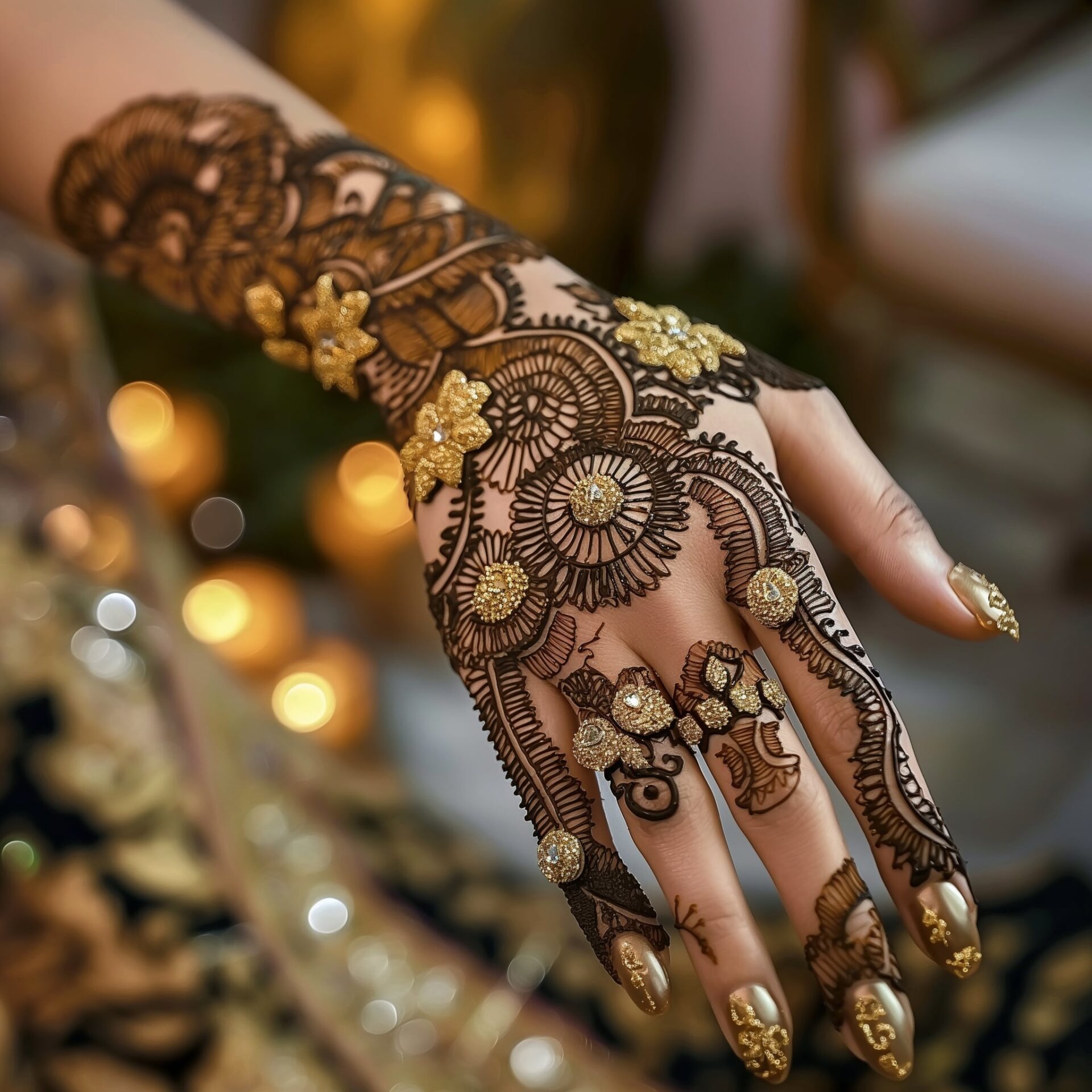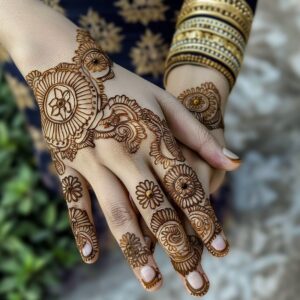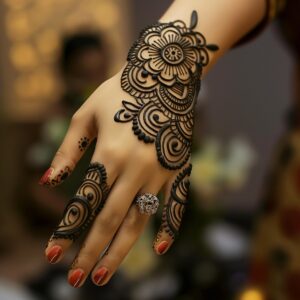Back Hand Mehndi Designs for Kids: Connecting Tradition Through Stories and Symbols
When you think about Mehndi, the intricate designs and cultural richness that come with it often bring to mind elaborate patterns, grand celebrations, and deep symbolism. However, for children, especially in the vibrant cultural landscapes of places like India and Africa, Mehndi takes on a different yet equally powerful role. It becomes a bridge – not only to tradition but also to stories, imagination, and creativity. The simple Mehndi designs for kids, especially on the back of their hands, carry with them a connection to the past, while sparking a sense of wonder in the present.
In many cultures, the art of Mehndi has been passed down from generation to generation. While adults may wear complex designs, kids are often given simpler, playful patterns, yet the significance remains. These designs become more than just decoration; they are part of the folklore, stories, and traditions shared within families. Each swirl, flower, or geometric pattern drawn on a child’s hand often carries a story, sometimes about ancient heroes, other times about nature’s wonders, or moral lessons from cultural tales.
The Simplicity of Tradition: Mehndi as Storytelling
As I traveled through parts of Rajasthan and West Africa, I noticed something beautiful: the tradition of Mehndi, particularly for children, was often tied to storytelling. During festivals or family gatherings, elders would gather the children, and as their small hands were adorned with Mehndi designs, stories would flow. These stories were of gods and goddesses, of brave warriors, and of nature’s beauty. Mehndi, in a sense, became a way of making these stories visible.
The designs on the back hand of children are often much simpler than those of adults. A single flower might take center stage, surrounded by swirling vines or small dots. Occasionally, a simple butterfly or star would grace the skin, symbols that children connect with naturally. These designs are not only visually appealing but also serve as a way to introduce kids to their cultural heritage in a way that feels light and fun.
In many regions, kids eagerly anticipate these moments. The joy isn’t just in having the Mehndi applied; it’s in hearing the stories that come with it. For instance, I remember one occasion where a young girl’s hand was decorated with a floral motif while an elder told the tale of the lotus flower, a symbol of purity and resilience in Indian culture. The flower wasn’t just a design – it was a lesson, a piece of heritage passed down through generations.
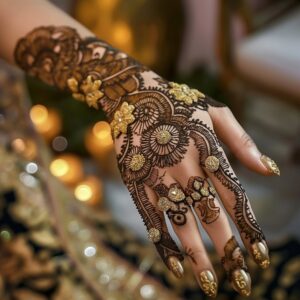

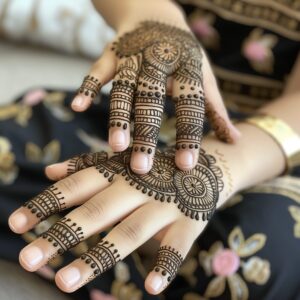

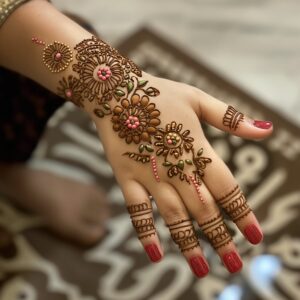
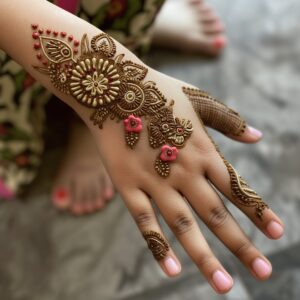
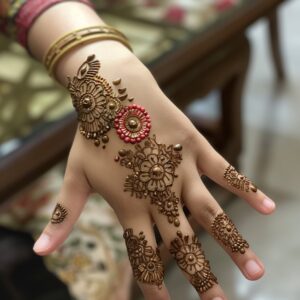
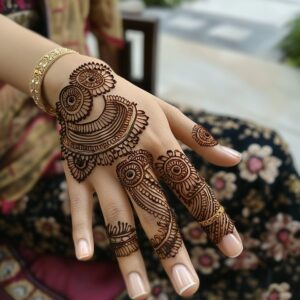
The Designs Themselves: Playful Yet Meaningful
The Mehndi designs for kids on the back of the hand are usually created with simplicity in mind, but that doesn’t mean they lack depth or significance. In fact, many designs carry hidden meanings, reflecting the values and stories that families want to pass on to their children.
Take the sun symbol, for example. It’s a common design for kids, often placed at the center of the hand. For some, it’s simply a fun and recognizable shape, but in many cultures, the sun represents life, vitality, and new beginnings. Another popular motif for kids is the peacock feather, symbolizing beauty, protection, and divine grace. These symbols, while simple in form, carry deep meanings that children can understand and appreciate as they grow.
What makes these Mehndi sessions even more special is that they are often accompanied by laughter and curiosity. Kids love asking questions, and as their hands are gently adorned with Mehndi, they become eager to know what each symbol means. It’s a teaching moment, wrapped in the joy of art. Elders are able to explain the cultural significance behind the designs, offering stories that make the experience all the more memorable.
I’ve observed that, in many families, the act of applying Mehndi to children’s hands is a time of bonding. Mothers, grandmothers, and aunts gather to decorate the little ones, often creating a nurturing and loving atmosphere. This moment, though fleeting, leaves a lasting impression on the children, tying them to their roots, their family, and their cultural identity in a very tangible way.
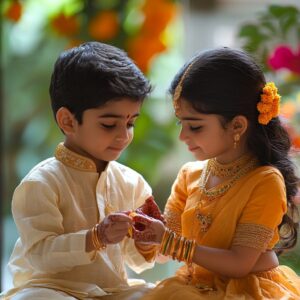

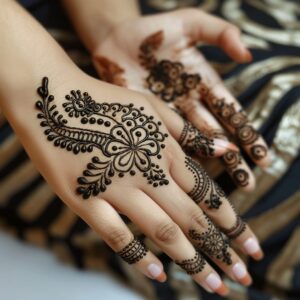
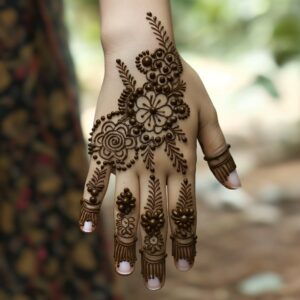
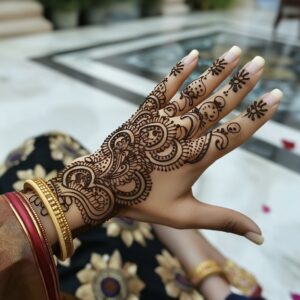
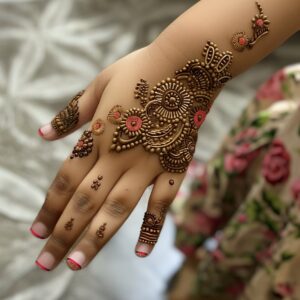
Mehndi: From Ancient Stories to Modern Celebrations
While Mehndi for children may start with the basics, it often evolves as the child grows older. What begins as a fun, creative activity transforms into a deeper connection to tradition and heritage. As children become more aware of the significance behind the designs, they start to see Mehndi not just as something beautiful but as a representation of their history and the stories they’ve been told.
In Rajasthan, for example, young girls often begin with simple designs during festivals and family events. By the time they reach adolescence, the Mehndi designs become more intricate, much like the stories themselves, which shift from lighthearted tales to deeper, more meaningful narratives about culture, family, and personal growth.
One thing remains constant, though – Mehndi is always a celebration. Whether it’s a major festival or a small family gathering, Mehndi symbolizes joy and connection. For children, it’s their first introduction to this world of tradition. The designs on their hands might be simple, but the impact they carry is profound.
I recall attending a celebration where children’s hands were decorated with Mehndi as part of a larger festival. The excitement in their eyes, the giggles as they admired each other’s designs, and the joy of being part of something bigger than themselves were palpable. It reminded me that Mehndi is not just an art form; it’s a way of bringing people together, of sharing stories and traditions that shape who we are.
Conclusion: A Timeless Art for All Ages
In the end, Mehndi designs for kids on the back hand offer more than just a visual treat. They are a gateway to understanding and appreciating the cultural roots that bind us. Through these simple, playful patterns, children connect with their heritage, learn about the values and stories of their ancestors, and carry forward traditions that have stood the test of time.
As they grow older, these experiences with Mehndi will serve as a reminder of the love and knowledge passed down through generations. From the first swirl of henna on their tiny hands to the more elaborate designs they’ll wear as adults, Mehndi is a beautiful way to honor the past while celebrating the future.
Explore More Mehndi Stories:
- Arabic Mehndi designs right hand – Discover the elegance and fluidity of Arabic Mehndi designs, where tradition meets personal expression in intricate, flowing patterns.
- Arabic Mehndi designs front hand – Dive into the world of front-hand Mehndi designs, where bold lines and delicate details come together to create stunning, meaningful art.
